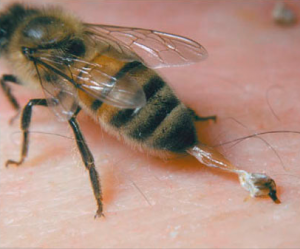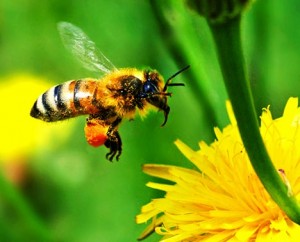 As Africanized bees spread across North America, more and more people are having to adjust to living alongside these bees. Thankfully the incidences of serious attacks are not as frequent as the media would have us believe. However there is no doubt that Africanized bees do prove a serious risk in some circumstances especially to the elderly, the very young and those with a serious life threatening reaction to bee stings.
As Africanized bees spread across North America, more and more people are having to adjust to living alongside these bees. Thankfully the incidences of serious attacks are not as frequent as the media would have us believe. However there is no doubt that Africanized bees do prove a serious risk in some circumstances especially to the elderly, the very young and those with a serious life threatening reaction to bee stings.
It is wise therefore to be aware of the best course of action to take if you are attacked by Africanized bees. Here are some things that you can do to reduce the seriousness of the attack.
1. If bees start bumping into you or flying around you or you see that you have disturbed a nest then Run away quickly. Encourage others to drop everything and do the same.
2. The bees will target your face, eyes and neck, so as you run try to pull your shirt or similar garment up over your head to protect yourself, obviously ensuring that you can still see where you are going.
3. Do not flail your arms about or try to the kill bees as crushed bees only emit more alarm pheromones and encourage more bees to join the attack.
4. Continue running until you find shelter in a building or secure vehicle. Africanized bees will chase something they suspect of trying to attack their nests for over a 100 yards. Do not jump into water as the bees will still be there when you come up for air.
5. Once you have reached shelter or have outrun the bees, remove all stingers. When a honey bees stings, it leaves its stinger in the skin, this kills the honey bee so it can only sting you once, but it also means that venom continues to enter into the wound for a short time after. Never pull out the sting with your fingers or with tweezers as this will leave part of the sting in, instead scrape it off with a credit card or your nail.
6. If you see someone being attacked by bees you should call the Emergency Services.
The venom in an Africanized bee sting is no more toxic than a European bee sting, in fact it is slightly less venomous. The problem arises from the sheer number of stings as many more Africanized bees will attack you if they feel threatened than would European honey bees. Most people can tolerate 15-25 stings without requiring special medical treatment, but any more and even those with no allergy to bee stings will start to experience problems.
People with a history of systemic allergic reactions (fainting and breathing problems), however, should always carry with them an emergency kit of injectable epinephrine, use it if they are stung and then immediately seek medical help. Anyone who receives more than 15-25 stings or feels in any way unwell after an attack should also seek medical supervision for possible delayed systemic complications. Severe complications can occur at any stage of your life even if you have never had a previous reaction to stings before, so do not take any risks.

